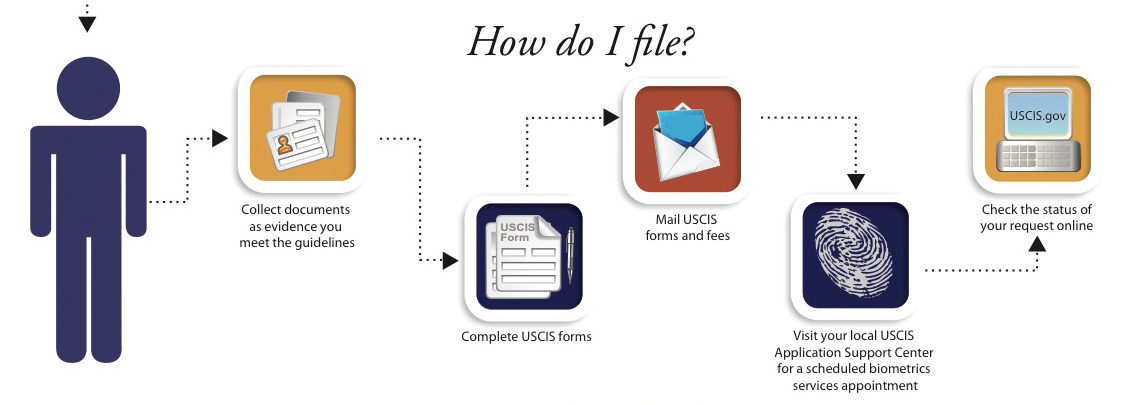What is Deferred Action for Childhood Arrivals (DACA)?
On June 15, 2012, the Secretary of Homeland Security announced that certain people who came to the United States as children and meet several guidelines may request consideration of deferred action for a period of two years, subject to renewal. They are also eligible for work authorization. Deferred action is a use of prosecutorial discretion to defer removal action against an individual for a certain period of time. Deferred action does not provide lawful status.
On Friday, December 4, 2020, a New York judge ordered the federal government to restore the Deferred Action for Childhood Arrivals (DACA) program to its original state. The decision restores the DACA program completely. Initial, renewal, and Advance Parole applications are being accepted by USCIS.
On July 16, 2021, a Texas judge issued a ruling partially ending the Deferred Action for Childhood Arrivals (DACA) program. The program continues for those who currently or formerly had DACA, but is closed to those who would be applying for the first time. DACA protections and benefits will continue (e.g. deportation protection and work permits) for the time being. DACA recipients can continue submitting renewal applications DACA recipients should continue to submit their DACA renewal applications 120 – 150 days before the expiration date. Current DACA recipients are able to continue applying for permission to travel outside of the United States through Advance Parole for humanitarian, educational, and employment purposes. Unfortunately, no first time DACA applications will be processed at this time. Biometrics appointments have been canceled for first-time applicants. First-time applicants who already completed their biometrics will not have their application processed. Although USCIS will still accept applications from people applying for DACA for the first time, the court order prevents USCIS from processing or approving these applications. USCIS has also stated that they will not refund any application fees. More information on this ruling
*DACA initial applications, renewals, and advance parole applications have a non-refundable fee of $495.
Guidelines
You may request DACA if you:
- Were under the age of 31 as of June 15, 2012
- Came to the United States before reaching your 16th birthday
- Have continuously resided in the United States since June 15, 2007, up to the present time
- Were physically present in the United States on June 15, 2012, and at the time of making your request for consideration of deferred action with USCIS
- Had no lawful status on June 15, 2012, meaning that: You never had a lawful immigration status on or before June 15, 2012, or Any lawful immigration status or parole that you obtained prior to June 15, 2012, had expired as of June 15, 2012
- Are currently in school, have graduated or obtained a certificate of completion from high school, have obtained a general education development (GED) certificate, or are an honorably discharged veteran of the Coast Guard or Armed Forces of the United States; and
- Have not been convicted of a felony, significant misdemeanor, or three or more other misdemeanors, and do not otherwise pose a threat to national security or public safety.

How do I file for Deferred Action for Childhood Arrivals?
- Collect document as evidence you meet the guidelines
- Complete USCIS forms
- Mail USCIS forms and fees
- Visits your local USCIS for a scheduled biometrics appointment
- Check the status online
Application/Renewal Process
CARECEN-LA College Legal Services offers free legal services to students and their immediate family (siblings, parents, grandparents), staff, and faculty of CSUSB. Book an appointment with CARECEN for legal guidance and representation with your Initial DACA Application or DACA Renewal.
- USCIS DACA Application Information
- Free DACA renewal assistance and funding opportunities in California
- Immigrants Rising DACA Updates
- Immigrants Rising DACA Frequently asked questions